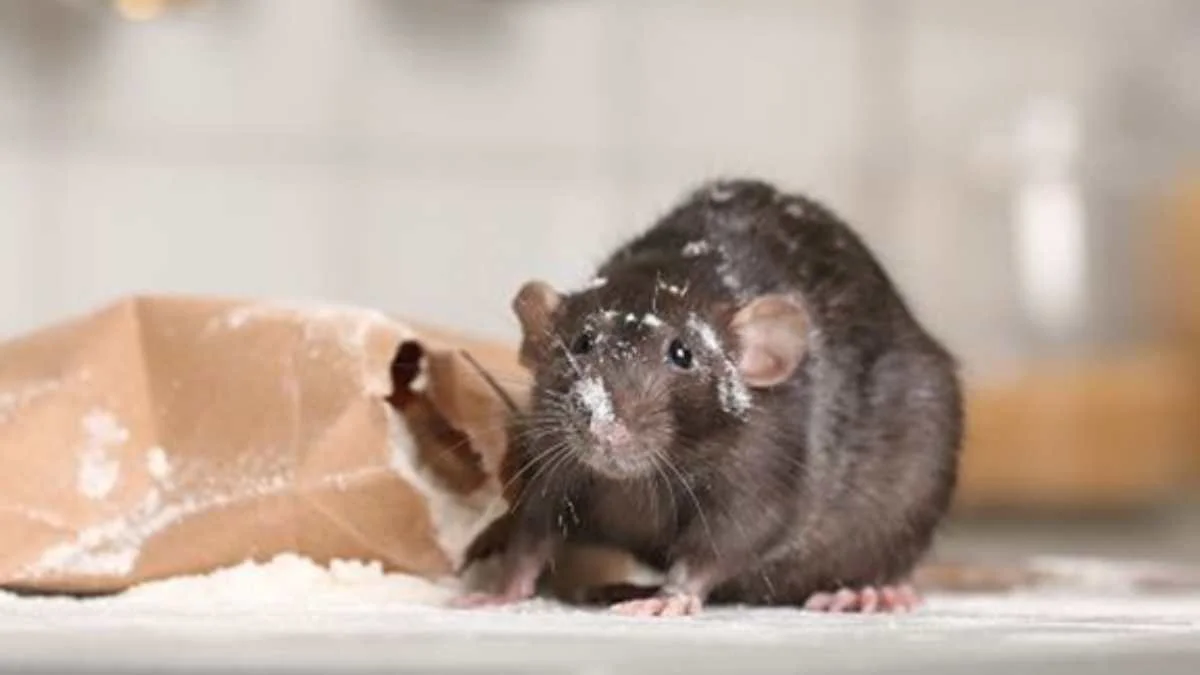GENERAL
What Would Happen If You Neglect Signs of Rodent Infestation?

Rodents may be small, but the problems they cause can grow quickly and become overwhelming if not addressed in time. Mice and rats are among the most common pests in homes and businesses around the world.
When signs of a rodent infestation appear—such as droppings, gnaw marks, or scratching sounds in walls—ignoring them can lead to severe consequences for your health, property, and even your finances.
This article explores what happens when rodent infestations are neglected and why prompt action is critical.
Table of Contents
1. Rodents Multiply Fast—Very Fast
One of the most alarming aspects of rodent infestations is how quickly they can spiral out of control. A single pair of mice can produce up to 60 offspring in one year. Rats are equally prolific breeders, with a single female capable of giving birth to six litters per year, each with 6–12 pups.
Neglecting the early signs—such as a few droppings or one or two sightings—gives these pests time to multiply behind walls, under floors, and in attic spaces. Within weeks, what might have started as a minor problem can escalate into a full-blown infestation that’s far harder and costlier to eliminate.
2. Health Hazards and Disease Spread
Rodents are not just a nuisance; they are dangerous disease carriers. They can transmit bacteria and viruses to humans directly and indirectly. Here are some serious health risks associated with rodents:
Hantavirus
This virus is spread primarily by deer mice and can be fatal. It’s transmitted through exposure to rodent urine, droppings, or saliva, particularly when cleaning contaminated areas.
Leptospirosis
A bacterial infection spread through rodent urine, leptospirosis can lead to liver damage, kidney failure, and, in severe cases, death.
Salmonella
Rodents often contaminate food sources and surfaces with their droppings. This can lead to food poisoning and serious gastrointestinal illness.
Allergies and Asthma
Rodent droppings, dander, and urine can trigger allergic reactions and worsen asthma symptoms, especially in children and the elderly.
Neglecting signs like droppings or unpleasant odours increases the risk of exposure to these diseases over time.
3. Structural and Property Damage
Rodents have strong teeth that never stop growing, so they chew constantly to wear them down. This chewing can cause significant damage to your property:
Chewing Through Wires
Rats and mice often chew on electrical wires, which can expose live wires and create a major fire hazard. In fact, rodent-related electrical fires are more common than many people realise.
Damage to Insulation and Walls
Rodents burrow through insulation for nesting material. They can destroy your home’s thermal barrier, increasing energy costs and reducing comfort. In walls, ceilings, and floors, their movements and nests can cause structural weakening over time.
Contaminated Storage Areas
Rodents frequently target pantries, garages, basements, and attics. They gnaw through boxes, bags, and containers, contaminating everything they touch with urine and droppings. Stored clothes, books, and family heirlooms are all at risk.
4. Increased Costs Over Time
What might have been a cheap fix early on—a few traps and sealing some entry points—can turn into a multi-thousand-dollar problem if left unchecked. Here’s how the costs add up:
- Property repairs: Replacing insulation, drywall, chewed wires, and damaged furniture.
- Pest control services: A larger infestation requires more treatments and more follow-up visits.
- Health costs: Medical bills for illness or allergies caused by rodent contamination.
- Lost groceries and contaminated goods: Food that must be thrown out due to contamination.
The longer you delay, the more entrenched the problem becomes—and the harder (and more expensive) it is to resolve.
5. Infestation Can Spread to Neighbours
Rodents don’t respect property lines. If you live in an apartment building, duplex, or tightly packed suburb, your neglected rodent infestation could soon become your neighbour’s problem too. Rodents move easily between properties in search of food and shelter, so what starts as your issue can escalate into a community-wide problem.
This can create tension with neighbours or even potential legal consequences if your inaction leads to infestations elsewhere.
6. Rodents Attract Other Pests
Rats and mice can bring other pests into your home. Fleas, ticks, and mites often hitch rides on rodents, leading to secondary infestations. These parasites can bite humans and pets, and they come with their own host of problems—from itchy bites to diseases like Lyme disease or typhus.
Neglecting the rodents also means opening the door to a whole ecosystem of other pests.
7. Devaluation of Property
Rodents can significantly devalue your property. If you’re looking to sell or rent out your home, evidence of a current or past infestation—such as droppings, damaged insulation, or gnawed wood—can deter potential buyers or tenants.
Pest problems must be disclosed in property transactions in many jurisdictions, and unresolved infestations could affect your ability to sell or lease your property for a good price.
8. Rodents Can Damage Vehicles
Rodents don’t just stick to your house—they also love cars. Especially during colder months, they may crawl under your hood for warmth and chew on rubber hoses, wiring, and insulation. This kind of damage can disable a vehicle and result in expensive repairs. If your garage or carport is infested, your vehicle could be the next target.
9. Rodents Can Become Aggressive
While most rodents prefer to avoid humans, a cornered or stressed rat or mouse can become aggressive and bite. This poses a risk to children and pets in particular. In rare cases, rat bites can cause a condition known as “rat-bite fever,” which has serious health implications.
Pets like dogs and cats may also try to chase or catch rodents, which can result in injury or disease transmission.
10. It’s a Persistent Source of Stress
Living in a rodent-infested home can cause continuous stress and anxiety. Hearing scratching noises at night, smelling foul odours from hidden nests, and worrying about contamination can disrupt your sleep and peace of mind. For families with children, the worry is even greater.
Even if you don’t see rodents regularly, knowing they’re there can make your home feel like anything but a safe haven.
Why Early Intervention Matters
The good news is that rodent infestations are manageable—if addressed early. Professional pest control services like Expert Rodent Control specialise in quick, safe, and effective rodent management. Acting early can help you avoid the high costs and health risks associated with a long-term infestation.
Expert Rodent Control can:
- Inspect your home to identify entry points, nesting areas, and food sources.
- Treat the infestation using safe, targeted, and environmentally responsible methods.
- Prevent future infestations by sealing holes, providing sanitation recommendations, and offering regular monitoring.
If you notice any of the following, it’s time to contact Expert Rodent Control immediately:
- Droppings in cupboards or near food sources.
- Noises in the walls or attic, especially at night.
- Greasy smear marks along baseboards.
- Gnawed packaging, wires, or furniture.
- Musky, unpleasant smells in specific areas.
By getting in touch with professionals like Expert Rodent Control, you not only eliminate the current issue but also put in place long-term solutions that keep your home safe, healthy, and pest-free.
Final Thoughts
Neglecting the signs of a rodent infestation can lead to serious consequences. From property damage and health risks to financial burdens and stress, the fallout from ignoring a rodent problem is far-reaching. Taking action early not only protects your family’s health and safety but also preserves the value of your property and your peace of mind.
Rodents are more than a nuisance—they’re a serious threat. Don’t wait until you’re dealing with dozens of them.
As soon as you suspect an infestation, contact the Expert Rodent Control to assess and address the situation. A little vigilance now can save you from a mountain of problems later.
-

 GENERAL7 months ago
GENERAL7 months agoChristofle – For Those Who Dream of Family Heirloom Silver
-

 SPORTS9 months ago
SPORTS9 months agoDiscover the World of Football with Streameast: Watch Your Favorite Leagues and Tournaments
-

 GENERAL3 weeks ago
GENERAL3 weeks agoUncovering the World of кинокрадко: The Dark Side of Film Piracy
-

 GENERAL3 months ago
GENERAL3 months agoATFBooru: Anime, Gaming, and Subculture Imageboard



























